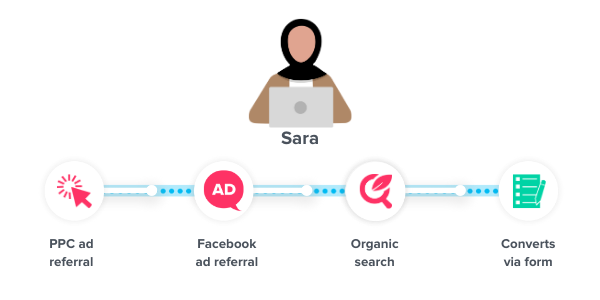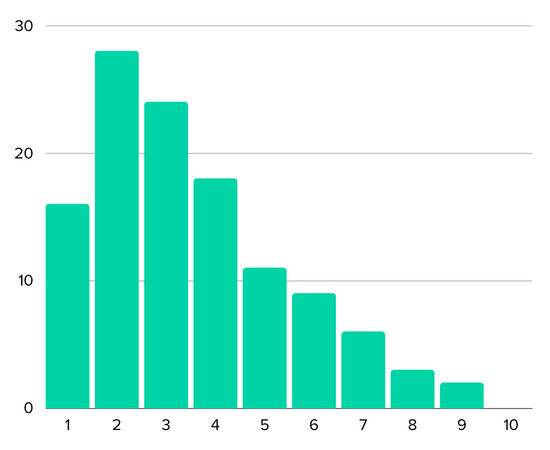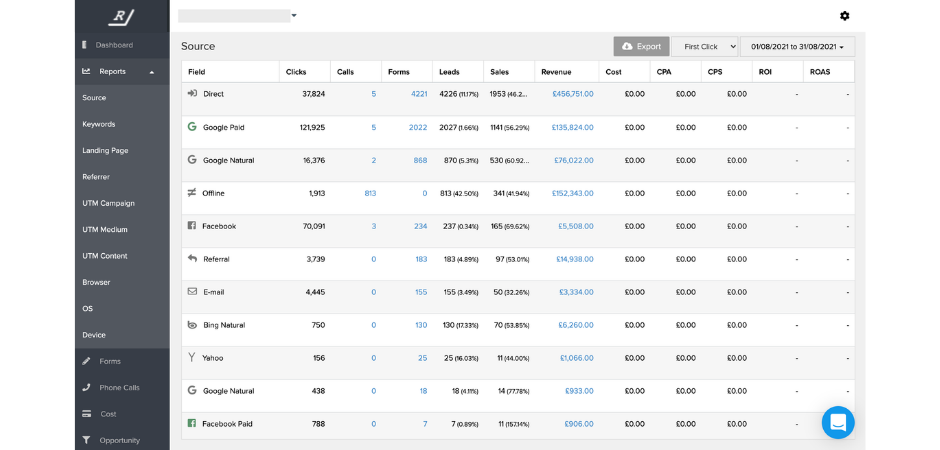The battle between your gut and your data is as old as time. In this blog, we explore which is the most reliable, plus we ask decision-makers their thoughts on gut vs data.
Data is a marketer’s greatest resource.
With it, you can track the impact of your work.
But there are a lot of issues in the way when it comes to getting good-quality data.
In fact, some marketers say that data is so unreliable that you should rely on your gut instead.
And there’s merit to that school of thought.
But which actually comes out top?
We spoke to decision-makers from over 115 businesses to see whether they favour their gut or their data.
Keep reading to learn what they think.
Modern marketing is very different from what it used to be. Marketing spans tens of channels and marketers can be churning out hundreds of posts per week.
We found that on average marketers are working across 14 different channels at one given time.
That’s an awful lot of content, and more specifically, data, to analyse at one time.
Related: How to best measure marketing performance
And when we consider the number of times a user engages with a business before they’re even close to converting, you can quickly see the importance of effective marketing data.
With it, you’ll be able to track, evidence and optimise your marketing efforts to drive more revenue at a lower cost.
Sounds ideal, right?
But getting there isn’t quite as easy as it sounds.
Marketers are dealing with a lot of data at one time.
Let’s imagine a situation where a business generates just one website visitor per month and that one visitor converts into a customer.
Easy.
You can connect that closed sale back to their lead generation point, and even better, back to their marketing touchpoints.
But the issue is that no marketer has this scenario.
Chances are marketers are generating thousands of sessions and a small pool of leads and sales per month.
And users are having so many touchpoints with you via different sources that there’s no easy way to manage that with the basic tools.
Related: How to track full customer journeys
With the tools we use, we can’t break down this data to a visitor level.
For example, you can’t see that Sara who closed last month was actually generated via a PPC ad.

The tools you’re using don’t communicate with one another. And, tools like Google Analytics can’t show visitor-level analytics due to privacy reasons.
Related: Limitations of Google Analytics
It means you’re left with different metrics tool to tool.
And what does that result in?
Weak metrics that mean very little.
We’re talking metrics like:
When you can’t seamlessly connect revenue through your entire marketing stack (that’s a website to CRM to analytics) you’re never going to have a full or accurate view of how to drive revenue through marketing.
Pro Tip
Looking to learn exactly how to connect revenue to your marketing? Ruler Analytics is the perfect tool for the job.
Learn exactly how we attribute revenue to your marketing.
You’re probably thinking that our advice is to use your gut based on what we’ve said so far.
“Gut and data are basically opposite ends of the scale, so it’s necessary to strike a balance.” Jeffrey Zhou, Co-Founder & CEO at Fig Loans
We believe that your gut should have a role in your decision-making. But, ideally, data should lead your marketing strategy.
And the decision-makers we spoke to agreed.
We asked them:
If 1 is data and 10 is gut, where do you land in how you decide strategic decisions?
The answer?
An overwhelming preference for data.
73% of decision-makers fell on the side of data with the average result being 3.45.

It’s clear from this that the majority of decision-makers rely heavily on data when it comes to strategic changes.
Gergo Vari, Founder and CEO at lensa.com said, “I’m all about what the data says, so I use it to guide my decision-making when it comes to marketing strategy. I trust that the numbers don’t lie, and they give me a good sense of which direction to take my campaigns in.”
And this idea of data being a good base was something universally felt.
Sebastian Schaeffer, Co-founder & CTO at dofollow.io added, “I think if you’re not relying on your data, you’re basically making decisions in the dark. It’s important to have some data to back up your decisions, even if it’s just a gut feeling.”
A few of our experts mentioned gut, data, gut.
If you’re not familiar with it already, it’s a concept that explores the idea of starting with your gut, refining with data, and then reapplying your gut feeling.
Nely Mihaylova, Content Editor at UNAGI Scooters, explained “For most decisions, the ‘gut, data, gut’ method is applied. Remember, it may take time to adjust to the change. Making choices when you don’t have all the information may be challenging, depending on your personality.
“Don’t be scared to reassess your position if new information contradicts your original conclusion. Build a fresh hunch, proceed, and revisit the data. As opposed to being a quick fix, “Gut, Data, Gut” is a method that requires a consistent application.”
Honestly, a mix.
Brandon Wilkes, Marketing Manager at The Big Phone Store added, “I find that gut decisions are great for mid-level decisions, but that I need to completely trust my data for the big decisions. Data is evidence. The gut is pure emotion and is hard to quantify.”
The first step is to clean your data.
Ensure you’re helping yourself and your team out by connecting the missing steps and closing the loop between your analytics and your marketing.
Of course, we would recommend a marketing attribution tool.
It’s unbiassed and can give you real-time results on the performance of your marketing campaigns.
You’ll get a broken-down view of clicks, leads, sales and revenue all by marketing channel, landing page, ad and even keyword.

Pro Tip
Not sure how it could work for you?
Marketing attribution tools like ours offer a broad range of reports. Here’s everything you can discover in Ruler Analytics
Once your data is looping from your marketing channels, to your CRM and your analytics you can start making data-driven marketing decisions on how to improve your results.
But remember.
Your gut is important.
You know your customers and what resonates with them.
But the great thing about clean data through an attribution tool is that you can test new ideas quickly.
And with these results, you can turn it up or off and save wasted budget or time.
But honestly, you need to find a mix that works for you.
Rodney Warner, CEO at Connective puts it, “The gut vs. data debate has been going on for a long time. You shouldn’t be following others and try to find a solution that works best for you.
“If it’s data, great! If it’s a mix of both data and gut feeling, that’s good too.”
Not sure what mix works best for you? Get in touch with our team to see how you can use data to better measure your marketing and make better decisions for your business.
Book a demo to see exactly how Ruler works in action. Or keep learning by reading our complete guide to marketing attribution.